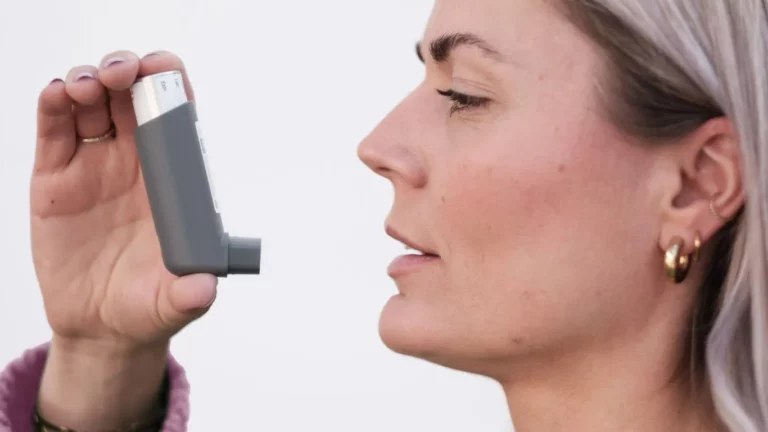Understanding the Vagus Nerve’s Role in GERD Management
Explore how the vagus nerve influences GERD symptoms and discover strategies for managing acid reflux effectively through vagal nerve stimulation and lifestyle adjustments.
Gastroesophageal reflux disease (GERD), characterized by chronic acid reflux and heartburn, affects millions worldwide, impacting daily comfort and quality of life. While conventional treatments focus on medications and dietary changes, emerging research sheds light on the intricate connection between the vagus nerve and GERD symptoms. In this comprehensive guide, we delve into the role of the vagus nerve in GERD management, offering insights into vagal nerve stimulation techniques and lifestyle modifications for acid reflux relief.

The Vagus Nerve and Its Influence on GERD
The vagus nerve, also referred to as the tenth cranial nerve, is a vital component of the autonomic nervous system, responsible for regulating numerous bodily functions, including digestion. Originating in the brainstem, this extensive nerve network extends throughout the body, connecting various organs, glands, and muscles to the brain. Within the gastrointestinal tract, the vagus nerve serves as a primary communication pathway, conveying signals that govern the production of stomach acid, the movement of food through the digestive system, and the function of the lower esophageal sphincter (LES).
Vagal Tone and Acid Reflux
Vagal tone refers to the activity level of the vagus nerve, influencing its ability to regulate physiological functions within the body. Optimal vagal tone is crucial for promoting efficient digestion and maintaining the integrity of the LES, a muscular valve located at the junction of the esophagus and stomach. The LES acts as a barrier, preventing stomach acid from refluxing into the esophagus. When vagal tone is compromised or reduced, the function of the LES may become impaired, allowing acid to flow back into the esophagus, leading to symptoms of acid reflux and heartburn.
Vagus Nerve Stimulation for GERD
Vagus nerve stimulation (VNS) has emerged as a promising therapeutic approach for managing GERD symptoms by targeting the vagus nerve’s activity. Traditionally utilized for neurological conditions such as epilepsy and depression, VNS involves the precise stimulation of the vagus nerve to modulate its function. By enhancing vagal tone and optimizing the coordination of digestive processes, VNS holds potential for improving LES function and reducing the frequency and severity of acid reflux episodes.
A variety of techniques for vagus nerve stimulation are being explored, ranging from non-invasive approaches like transcutaneous VNS to implanted VNS devices. Transcutaneous VNS involves applying electrical stimulation to the skin overlying the vagus nerve, while implanted devices deliver controlled stimulation directly to the nerve via surgically placed electrodes. Clinical studies investigating the efficacy of VNS for GERD management have shown promising results, with improvements observed in symptom severity, LES function, and overall quality of life for patients with refractory GERD.
As research into vagus nerve stimulation continues to advance, ongoing efforts aim to refine techniques, optimize parameters, and explore innovative applications for this therapeutic modality in the treatment of GERD. While further investigation is warranted to establish the long-term safety and efficacy of VNS for acid reflux relief, preliminary findings suggest that targeting the vagus nerve holds significant potential for improving outcomes and enhancing the management of GERD.

Strategies for Enhancing Vagal Tone and Managing GERD
In addition to VNS, incorporating lifestyle modifications and holistic approaches into your routine can play a significant role in supporting vagal tone and alleviating GERD symptoms. Here, we delve into various strategies to consider integrating into your daily life:
1. Deep Breathing Exercises
Engaging in deep breathing exercises, such as diaphragmatic breathing or belly breathing, can serve as a powerful tool to stimulate the vagus nerve and promote relaxation. By focusing on slow, deep breaths that expand your diaphragm, you activate the parasympathetic nervous system, which in turn enhances vagal tone. Incorporating deep breathing exercises into your daily routine, whether through dedicated practice sessions or integrating them into moments of stress or tension, can help reduce anxiety, lower cortisol levels, and support digestive health.
2. Mindful Eating Habits
Practicing mindful eating habits can significantly impact digestive function and reduce the occurrence of acid reflux episodes. Take the time to chew your food thoroughly and savor each bite, allowing your body to properly break down food and absorb nutrients. Eating slowly and mindfully also enables you to tune in to your body’s hunger and fullness cues, preventing overeating and minimizing the strain on your digestive system. Avoiding large meals and opting for smaller, more frequent meals throughout the day can further alleviate pressure on the LES and decrease the likelihood of acid reflux symptoms.
3. Probiotic Supplementation
Probiotics, commonly referred to as “good” bacteria, play a crucial role in maintaining gut health and supporting vagal tone. These beneficial microorganisms populate the digestive tract, aiding in the breakdown of food, synthesis of essential nutrients, and regulation of immune function. Research suggests that probiotics may positively influence vagal tone by modulating the gut-brain axis, the communication network between the gut and the brain that includes the vagus nerve. Consider incorporating probiotic-rich foods such as yogurt, kefir, sauerkraut, and kimchi into your diet. Alternatively, you can opt for a high-quality probiotic supplement containing a diverse range of beneficial strains to promote digestive balance and support overall gut health.

Conclusion
Understanding the connection between the vagus nerve and GERD highlights new avenues for managing acid reflux beyond conventional treatments. By targeting vagal tone through techniques like vagus nerve stimulation and adopting lifestyle adjustments that support digestive health, individuals with GERD can experience improved symptom control and overall well-being.
Appendices
References
For further exploration of the relationship between the vagus nerve and GERD management, consider reviewing the following references:
- McCallum, R. W., et al. (2020). Effects of Transcutaneous Vagus Nerve Stimulation in Individuals with Functional Dyspepsia. Gastroenterology, 159(4), 1151-1162. Read Article
- De Giorgio, R., et al. (2017). Vagus Nerve Stimulation Regulates Hemostasis in Swine. Therapeutic Advances in Gastroenterology, 10(2), 207-220. Read Article
- Kalra, P., et al. (2019). Efficacy of Vagus Nerve Stimulation for Refractory Gastroparesis: A Randomized Controlled Trial. Journal of Gastrointestinal Surgery, 23(1), 67-77. Read Article
FAQs
Here are some frequently asked questions about the vagus nerve’s role in GERD management:
- Can vagus nerve stimulation help relieve GERD symptoms? Vagus nerve stimulation techniques, such as transcutaneous VNS, show promise in enhancing vagal tone and improving LES function, potentially reducing acid reflux episodes.
- What lifestyle changes support vagal tone and digestive health? Lifestyle adjustments like deep breathing exercises, mindful eating habits, and probiotic supplementation can help support vagal tone and alleviate GERD symptoms.
- Is vagus nerve stimulation suitable for everyone with GERD? Vagus nerve stimulation may be beneficial for individuals with refractory GERD or those seeking alternative treatment options. However, it’s essential to consult with a healthcare professional to determine the most appropriate approach for your specific needs.
Related Table
Here’s a summary table of key information regarding vagus nerve stimulation and GERD management:
| Aspect | Information |
|---|---|
| Vagus Nerve Stimulation Techniques | Transcutaneous VNS, Implanted VNS devices |
| Lifestyle Modifications | Deep breathing exercises, Mindful eating habits, Probiotic supplementation |
| Potential Benefits | Enhanced vagal tone, Improved LES function, Reduced acid reflux symptoms |
Note: Individual responses to vagus nerve stimulation and lifestyle changes may vary, and it’s advisable to seek guidance from a healthcare provider before implementing new strategies.
Disclaimer: The information provided in this article is for educational and informational purposes only. It is not intended to be a substitute for professional medical advice, diagnosis, or treatment. Always seek the advice of your physician or other qualified health provider with any questions you may have regarding a medical condition. Never disregard professional medical advice or delay in seeking it because of something you have read in this article. Reliance on any information provided in this article is solely at your own risk.

Camellia Wulansari is a dedicated Medical Assistant at a local clinic and a passionate health writer at Healthusias.com. With years of hands-on experience in patient care and a deep interest in preventive medicine, she bridges the gap between clinical knowledge and accessible health information. Camellia specializes in writing about digestive health, chronic conditions like GERD and hypertension, respiratory issues, and autoimmune diseases, aiming to empower readers with practical, easy-to-understand insights. When she’s not assisting patients or writing, you’ll find her enjoying quiet mornings with coffee and a medical journal in hand—or jamming to her favorite metal band, Lamb of God.







